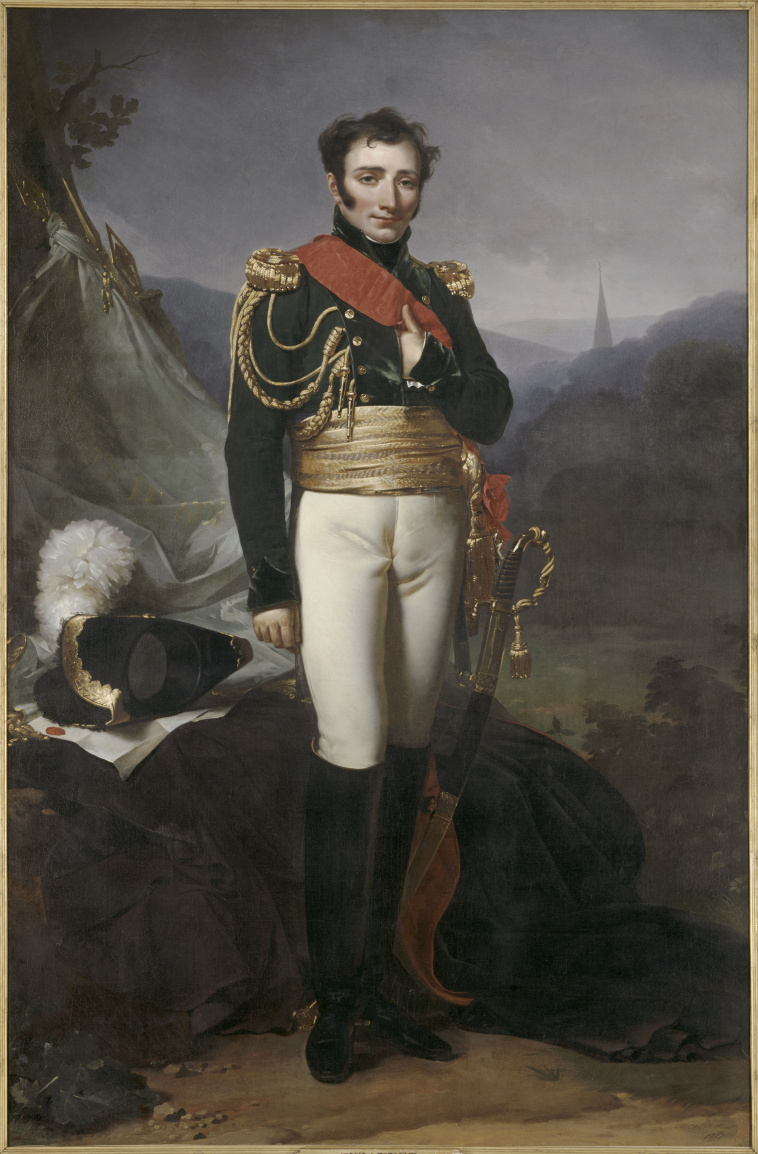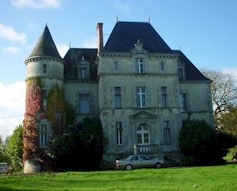In its third year, the Chavagnes Studium Conference received sponsorship this year from the Grand Priory of Great Britain. Three members of the Order gave papers and there were seven members of the Grand Priory, including our new Grand Prior designate, Chev. Anthony Dickinson, at the event. Several young men from the College will be admitted to the Order as Esquires in our forthcoming Investiture on 28th & 29th of September in Preston next month.
The College was founded 15 years ago in what was a former junior seminary in the Diocese of Luçon and for the past two years has been in the process of creating a Liberal Arts Degree course - the Studium - fully functioning starting this September. Although situated in the historic Vendeé region of France, it is an English speaking College, drawing students form all over Europe and beyond, including the USA.
The Conference title this year was "Europe and the Faith".
The Chaplain General for Great Britain gave a paper entitled,
The Dictatorship of Relativism and European Identity.
An analysis of Pope Benedict XVI's Regensburg Lecture
Fr Mark Lawler, SChLJ, CMLJ, presented a paper on
Chesterton and Anglo-Catholicism.
The keynote speaker was JOSEPH PEARCE, a senior fellow at The Cardinal Newman Society and editor of its journal. He is a senior contributor at The Imaginative Conservative and senior editor at the Augustine Institute. Up until recently, Director of the Center for Faith and Culture at Aquinas College in Nashville, Tennessee he was previously on the staff of Thomas More College of Liberal Arts in Merrimack, New Hampshire, Ave Maria College in Ypsilanti, Michigan and at Ave Maria University in Ave Maria, Florida. His books include biographical works on C.S. Lewis, Shakespeare, Tolkien, Chesterton, Wilde, Solzhenitsyn and Belloc. He is a visiting professor for the Studium’s new Liberal Arts degree being launched in September 2018. He presented two fascinating talks
The catholic Literary Revival
and
The Catholic vision of JRR Tolkien
Luca Fumagalli is an Italian teacher and writer. He is co-founder and Editor of Radio Spada
and has published on RH Benson, Baron Corvo and William Golding.
Ferdi McDermott is Principal and Founder of Chavagnes International College (www.chavagnes.org) and the Chavagnes Studium. He has authored and edited several books on literary and theological topics and also founded the international Catholic cultural journal, St Austin Review in 2000. (http://staustinreview.org/)
Benjamin Harnwell presented a paper on
The Price of Liberty is Eternal Vigilance - Does Europe want to pay the price?
He is director of the Dignitatis Humanae Institute, founded to help Christian politicians defend the faith in the public square. He drafted the Universal Declaration of Human Dignity, launched by the Speaker of the European Parliament in 2009 and was a long-term aid to senior British politician Nirj Deva from 1996 until stepping down as Chief of Staff in 2010 to concentrate on DHI. He writes occasional pieces for Breitbart and the National Catholic Register.

Daniel Rabourdin, film producer (formerly at EWTN) showed the English version of his film
"The Hidden Rebellion"
It presents a searing examination of the events surrounding one of history's most chilling stories of genocide, the slaughter of the noble Catholics of the Vendeé.

“The Courtesy of Polymaths: Jesuit and Lutheran scholars in 17th c. Europe”,
Dr Thomas E Conlon.
Dr Thomas E Conlon.

Daniel Rabourdin, film producer (formerly at EWTN) showed the English version of his film
"The Hidden Rebellion"
It presents a searing examination of the events surrounding one of history's most chilling stories of genocide, the slaughter of the noble Catholics of the Vendeé.

We walked the few minutes to the local cinema in Chavagnes to watch the screening.
One of the College cats followed the party and had to be ejected!
In fact, the local felines seemed particularly interested in some of the talks.
Here the College Chaplain calms the savage beast.
She only wanted her own chair.
The week included a visit to the Chateau, Chardière Castle, just two kilometres from the College. It is still lived in by the descendants of the Count of Suzannet, who led the Army of Lower Poitou during the Vendée Wars in 1799. In pride of place is a painting by Jean-Baptiste Mauzaisse of the Count. He is one of the generals of the Vendeeé whom the four houses of the school are named after: Suzannet, Rochejaquelein, Cathelineau and Charette.


Cocktails served in the beautiful surroundings of the Chateau helped the evening along, with a toast to the General and the great history of the Vendeé.
The Liturgy formed an integral part of the week.
We sang the Little Office of Our Lady each day and celebrated High Mass.
The East window depicts the Proclamation of the Dogma of the Immaculate Conception.
Built on the hillside overlooking the course of the Petite Maine, the sanctuary of La Salette in La Rabatelière, consists of various buildings that marked the parish life of the late XIX th century and shows the fervor of the Vendée to honour Our Blessed Lady. The sanctuary was built in 1887 on the initiative of Father Hillairet, parish priest of Rabatelière, in part, to provide work for the local people. It represents the apparitions of the Virgin to the children of La Salette in the Alps in 1846. A pilgrimage takes place every year on the first Sunday of September.
In 1949, Bishop Roncalli who was apostolic nuncio, but who will become
Pope John XXIII was visiting La Rabateliere - and the College. The inhabitants,
all proud, took him to see the sanctuary of La Salette.
Seeing this site, Bishop Roncalli exclaimed:
" Oh, how many bricks, how many bricks ! ".
The Virgin appearing to the children.
And weeping for the sins of mankind.

Another visit - this time to the Chateau in Les Brouzils.
A manor house has stood on the site since the 14th century. The present house dates from 1884 but the house it replaced served as a hiding place during the Terror. Local priest, Canon Goillandeau sometimes went there to say Mass. It was also part of the 83 houses burned on February 22, 1793, by the infernal columns of General Turreau, whose forces massacred tens of thousands of Vendeéans.
Not forgetting our bodily nourishment.
Meals served each day in the College Refectory.












































